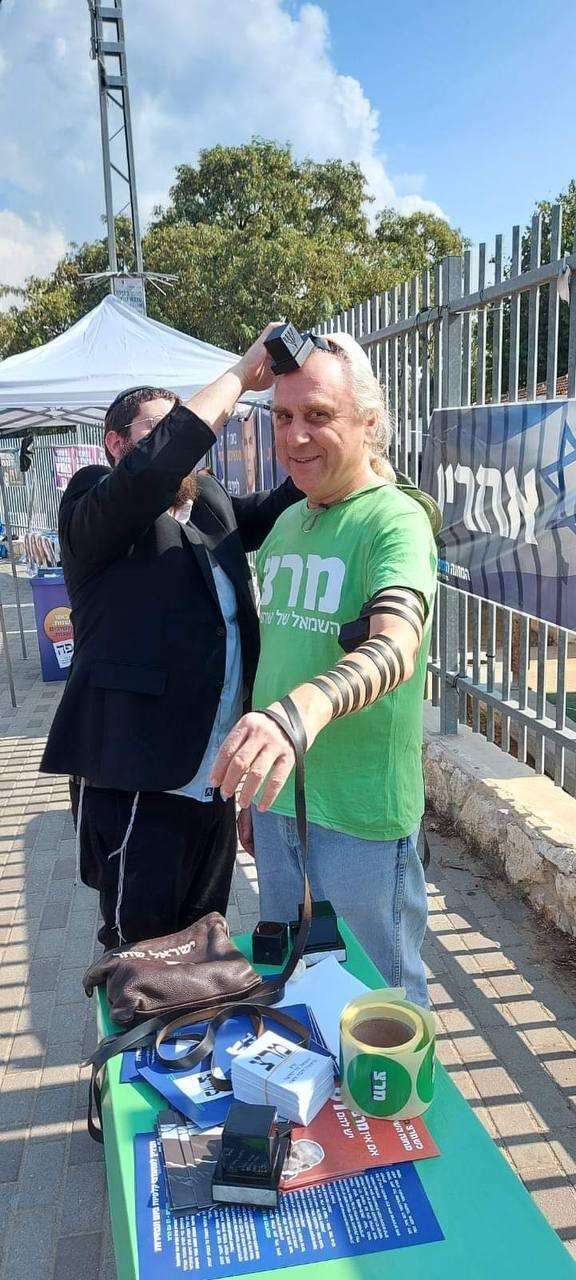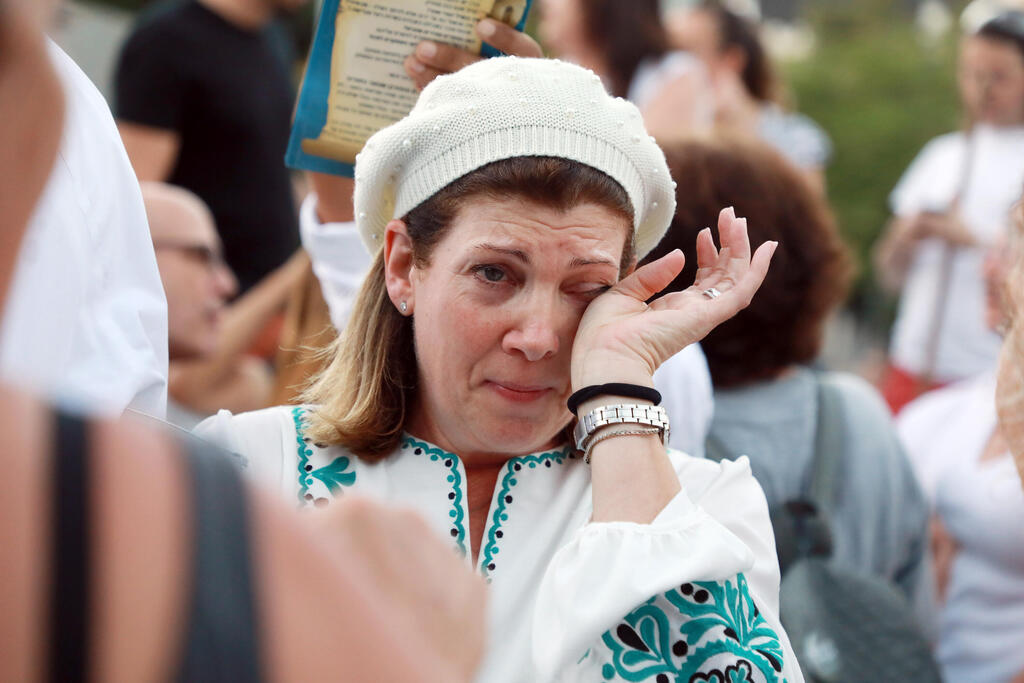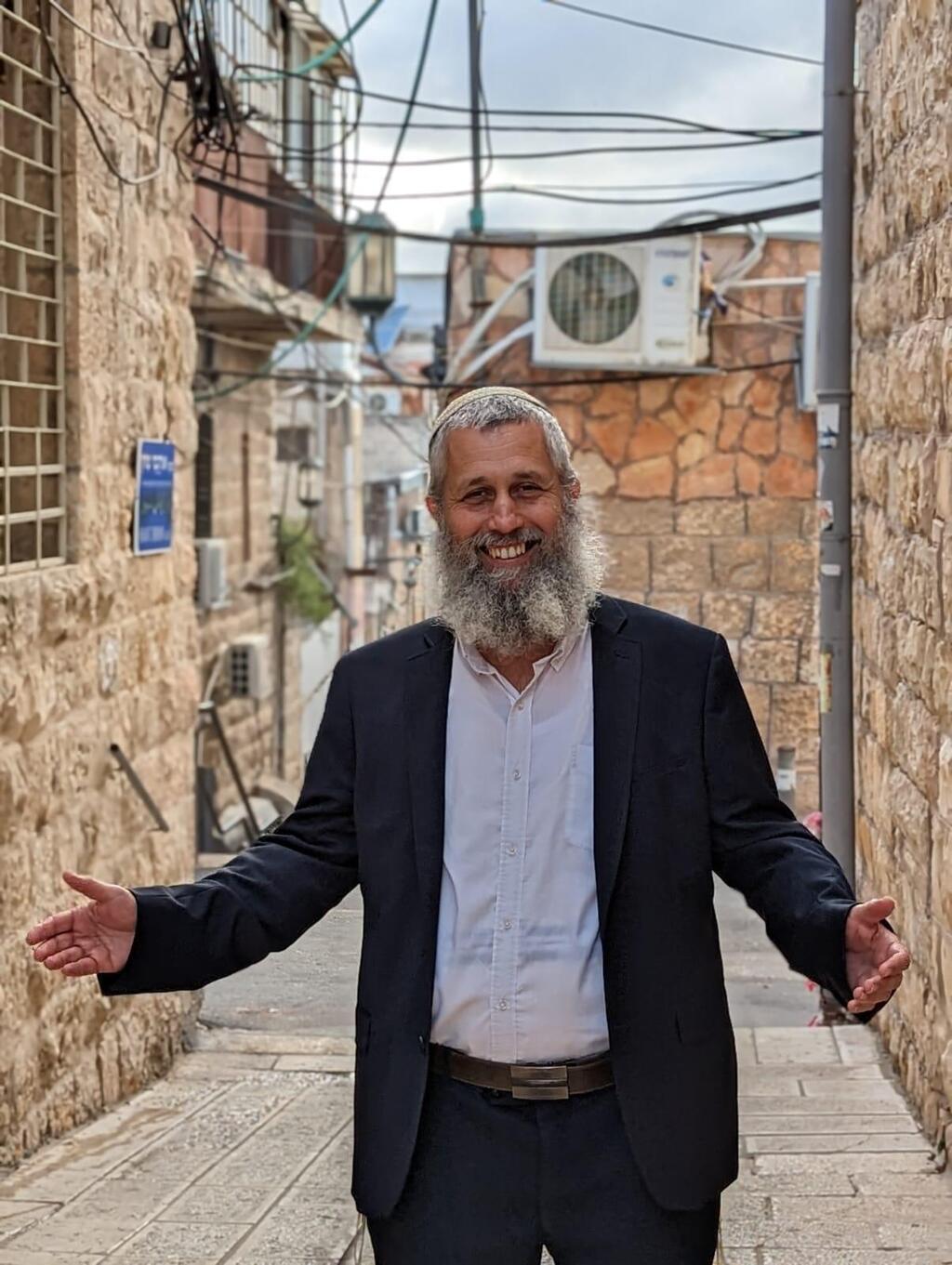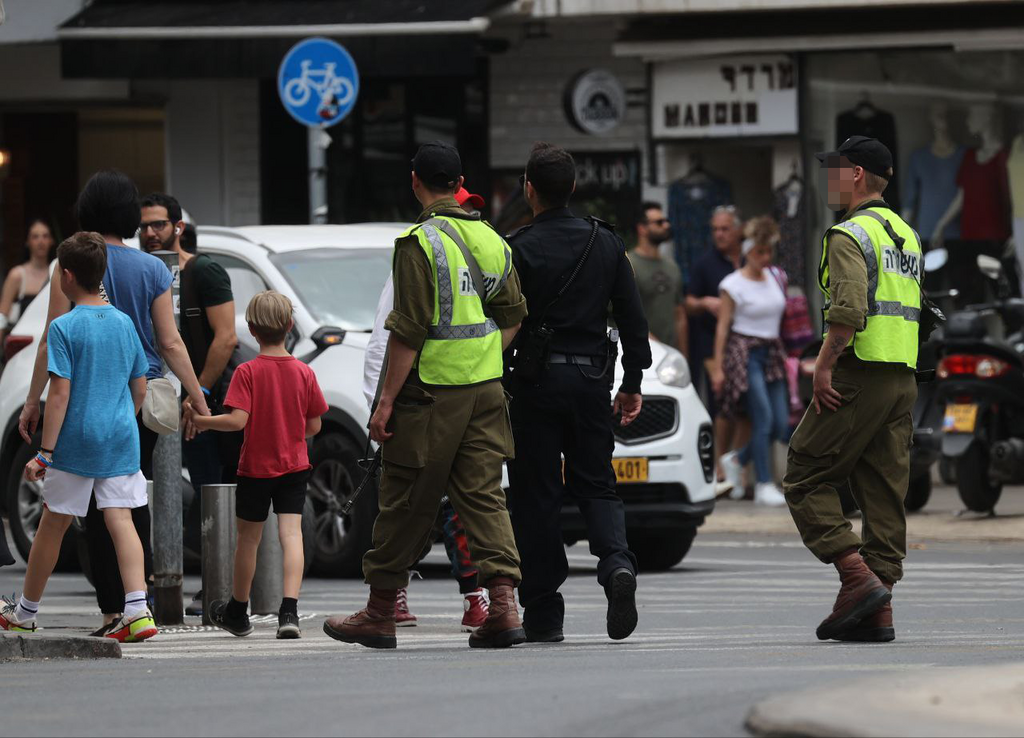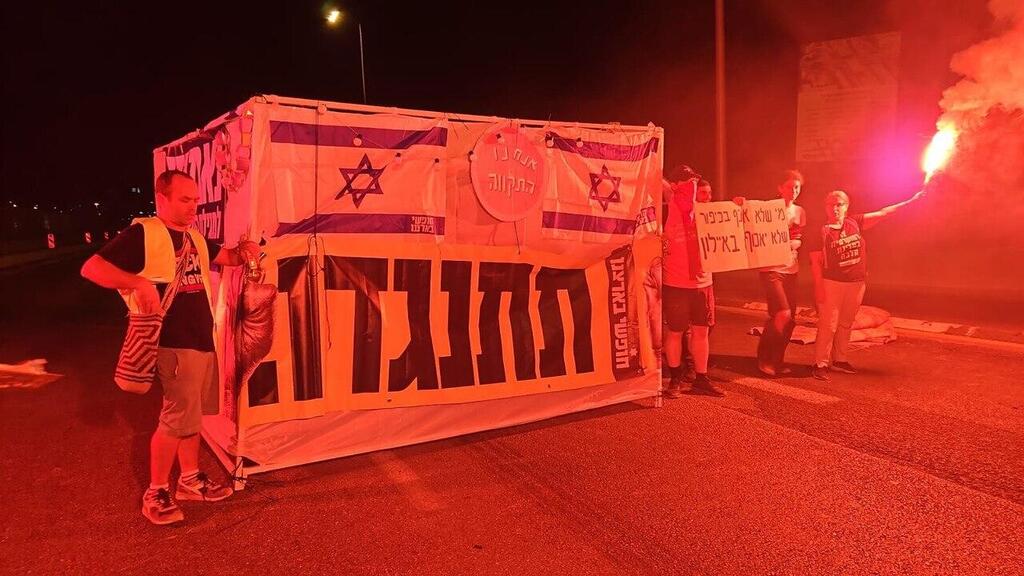Getting your Trinity Audio player ready...
In Jerusalem's Mea Shearim neighborhood, women are expected to adhere to strict modesty guidelines; failing to do so may result in verbal harassment or worse. Secular visitors should exercise caution, avoid raising their voices and refrain from congregating in groups on the streets. Soldiers with weapons are particularly unwelcome, with potential backlash should they venture into the neighborhood's narrow streets or synagogues.
Read more:
Why is this the case? Mea Shearim is a neighborhood rooted in deep-seated prejudices. At its core, there's a profound fear among residents that secular or Zionist influences will draw them away, possibly even leading to the enlistment of their sons in the IDF or perceived cultural erosion. Such anxieties foster prejudice, which in turn cultivates hostility. This hostility often results in sweeping generalizations, seeing anyone different as an adversary.
7 View gallery
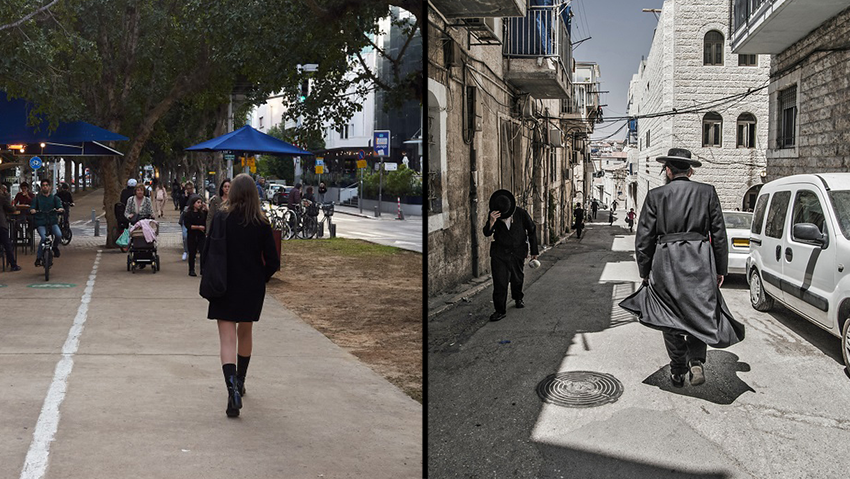

Secular Jews in Tel Aviv and Ultra-Orthodox Jews in Mea Shearim
(Photo: Damian Parker / Shutterstock.com)
In Tel Aviv, post-Yom Kippur street prayers are now viewed as provocations, akin to a scantily clad woman in Mea Shearim. These prayers might be traditional, echoing the practices upheld in Jewish synagogues for millennia. Yet, being on the street, they may even have fewer halachic constraints.
Don't be naive. In various parts of Tel Aviv, worshipers faced verbal assaults and their prayers were abruptly interrupted. This wasn't an isolated incident at Dizengoff Square or limited to the Rosh Yehudi organization. Similar confrontations unfolded in areas of the city where prayers have been conducted for years, spanning from the southern parts to the central and northern regions.
Worshipers were heckled, shouted at and berated, forcing many to retreat to their homes. Yet, the aggression didn't cease there; incidents were also reported in Ramat Aviv, Jaffa and beyond. It's essential to recognize that these disruptions weren't solely due to specific factors like a particular rabbi or an alleged partition that the police confirmed didn't exist. The aftermath of Yom Kippur in Tel Aviv saw many, from hundreds to thousands, left distraught, overwhelmed, and grappling to understand the day's events.
7 View gallery
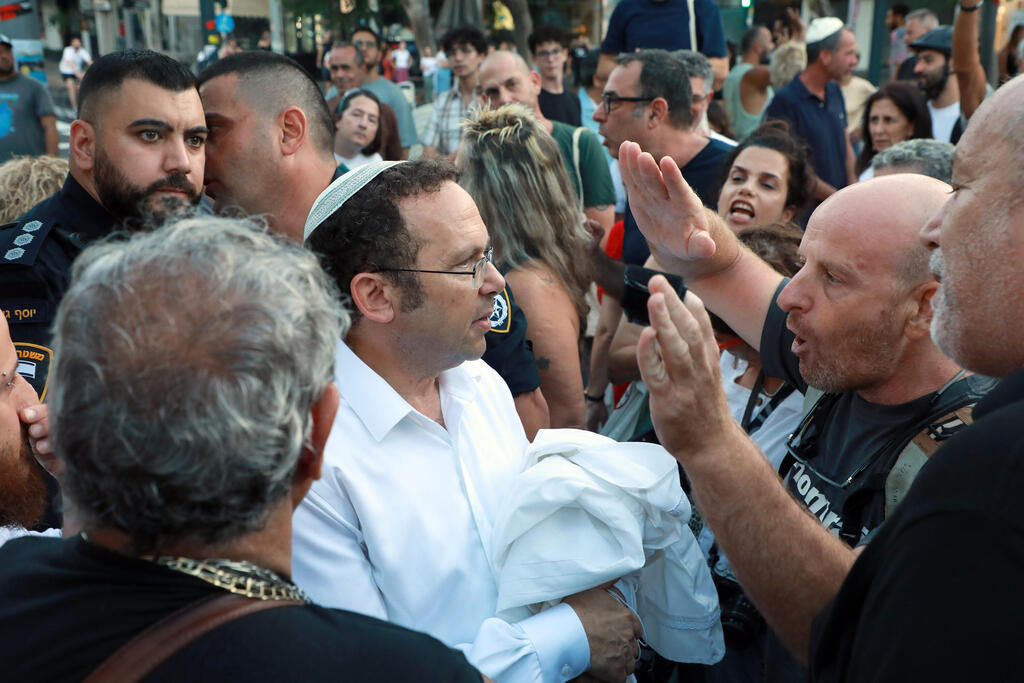

Locals confront organizers of gender-segregated Yom Kippur prayer at Tel Aviv's Dizzengoff Square
(Photo: Dana Kopel)
In today's Tel Aviv, religious residents, those who attend synagogues and Torah study halls, are hesitant to partake in the traditional dance with the Torah scrolls during the upcoming Simchat Torah celebration. They harbor fears that these sacred scriptures might be desecrated and that they might face hostility.
These individuals aren't extremists but everyday religious citizens who share amicable relations with their neighbors. Their community is diverse, comprising supporters and critics of religious reforms, spanning from right-wing to left-wing ideologies. Their apprehension stems from a belief that the opposition isn't just about religious reforms or coercion; after all, no one is imposing anything. Those seeking alternative prayer methods, without the intent to merely provoke or harm, have an array of other locations in Tel Aviv to express their faith.
Yes, as in Mea Shearim, the plague of bigotry is also spreading in Tel Aviv, and in Tel Aviv the root of bigotry is a deep anxiety, a sense of threat, lest they make us put on tefillin, lest our children learn Torah or the country falls apart. Is a new, dangerous breed of secular Haredim growing in Tel Aviv before our eyes?
Dangerous anxiety
I cannot say that the Tel Aviv anxiety is unfounded. It has deep, historical and spiritual reasons, and there are also religious leaders, politicians and others who unfortunately repeatedly add fuel to the fire of anxiety. The guilty, God bless, are legion. But I also cannot say that Mea Shearim's anxiety is unjustified either. After all, Zionism really caused a tremendous secularization movement, and army service has a negative influence from a religious standpoint, and "we" (the old Jewish settlement) were here first and they are the invaders, and other such claims.
Anxiety, even though it might be justified, is very dangerous, and Tel Aviv's anxiety is also tainted by generalizations and exaggerations, as in Mea Shearim. "All the religious are judicial reform supporters and therefore are enemies of democracy", "religion is a danger to the state" and from there, the road to fanaticism, hatred and violence is very clear.
Some may deem this comparison unacceptable. After all, Tel Aviv is the bastion of freedom and liberalism. After all, everything is allowed in it: it is permissive, it is a center of the LGBT community, of original and bold culture, of new families, of spiritual and human experiments, of avant-garde art. After all, it believes in unrestricted freedom. And so I ask, why is it not possible to pray in a street in Tel Street Aviv like a synagogue, simply like that? Should religious people shut themselves up in their homes? Is a gathering for prayer or a parade with a Torah scroll a threat to Tel Aviv? I ask, holding back tears, as I write this.
I am convinced that what happened on Yom Kippur is not an expression of the true Tel Aviv. I am sure that the vast majority of Tel Avivians are true liberals, and true Jews, who respect our national symbols and our common tradition, secular or religious.
On a personal note: I will never be able to live in Mea Shearim. I cannot live in a place where there is no respect for others, and I especially cannot live in a place that is driven by deep anxiety and whose climate is filled with hatred.
Stop the bigotry
I am from Tel Aviv. I am very religious (or at least I try to be) and I am very liberal (for the avoidance of doubt, liberal = passionate supporter of individual rights and freedom of expression, and strongly opposed to coercion in all its forms). I live in Tel Aviv because I believe it is a place where you can live in real freedom, free of bigotry. I believe that it is possible to have dialog here and that there is respect, for each other and for everyone's freedom to express their beliefs.
Last year on Simchat Torah, my son, who is an officer in the Armored Corps, accompanied us to the dance procession with Torah scrolls in the streets of Tel Aviv with his personal firearm strapped to his shoulder. A man with a motorcycle stopped next to him and hassled him. "Why are you walking around with a weapon in Tel Aviv, what is this fascism? Go back to your settlement", while taking a picture of him (remember - we live in Tel Aviv). Of course, the weapon was with him simply because it is forbidden to leave it at home unattended according to army protocol.
So the two places in Israel where a kippah-wearing IDF officer with a weapon could get attacked are in Tel Aviv and Mea Shearim.
Dear Tel Avivians, leaders and ordinary people. I know that what happened on Yom Kippur does not represent most of you. They explained to me that this was a fringe minority. I am asking you, begging you, don't let this obnoxious minority take over the discourse and turn Tel Aviv into a secular-zealous fortress. The damage will be enormous. Keep Tel Aviv truly liberal, truly national and truly respectful, as it has always been. Stop this madness. Anti-religious bigotry is not only not liberal in any sense, but when it crosses the line it becomes hatred of Judaism in its own right, and it looks too similar to anti-Semitism. And it hurts so much.
I am asking you, begging you, don't let this obnoxious minority take over the discourse and turn Tel Aviv into a secular-zealous fortress.
It is fine and important to protest against the government and the reform. Holding demonstrations against prayer, insulting worshipers or Torah scrolls isn't. If this continues, it will also deal a major blow to the just and genuine cause of the protest. Let's all say together, religious and secular residents in Tel Aviv: we are liberals and we are Jews. We respect each other, we want the continuation of our tradition in this country, in this dear city. Even if we have differing opinions on prayer, we will not disrupt it, we will not despise it and the people to whom the prayer is dear
Let's collectively seek a way to heal the divisions. In a few days, Simchat Torah will be upon us, marking the second procession with the Torah scrolls, a tradition that began around 80 years ago in Tel Aviv and then radiated outward throughout the country.
Without offering specifics, I appeal to the heads of the secular and liberal factions in the city, as well as the broader public, political figures and other leaders: rise to the challenge. Let's find a moment where we can all celebrate – with joy, dignity, and affection. Let's momentarily set aside our protests for a week. Let’s search for a meaningful opportunity to set things right, to convey a fresh message: that we value ourselves and others, even if we hold differing views, and that we honor Judaism and the Torah, regardless of our varying personal interpretations. Despite our differences, there’s always room for unity and love.


